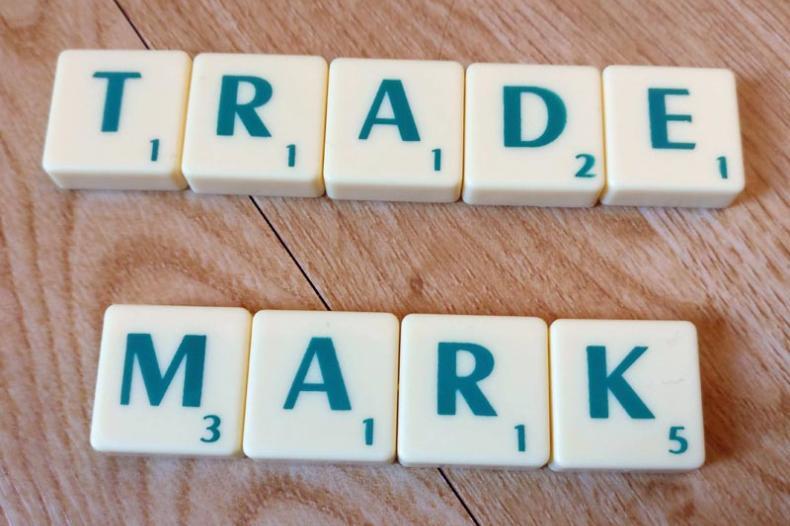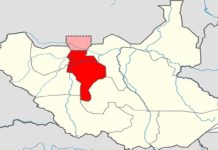Gift Natalino
Africa-Press – South-Sudan. A successful business requires a commitment to building a proper foundation. One of the foundations of any business is a distinctive and protected trade identity, which includes registered trademarks.
Needless to say, disregard for intellectual property registration and unprotected trademarks are some of the mistakes made by the many trademark proprietors across the globe that have tasted the bitter fate of infringement over the years.
In London (United Kingdom) and Philadelphia (United States), for example, 85 per cent of brands experienced trademark infringement in the year 2020, showing a steady upward trend from 81 percent in 2018 and 74 per cent in 2017 (CompuMark, 2020). With consecutive patterns of an upward trend, the figures in 2021 and 2022 are or are to show further percentage growth.
Intellectual property (IP) infringement, especially in the form of counterfeiting or trading in counterfeit goods, is undeniably a threat to efficient business and the well-being of consumers. It also damages the engine of economic growth, by reducing business revenues and undermining incentives to innovate. According to the OECD and EUIPO, 2018, high levels of corruption and poor IP protection are factors that greatly influence the degree of trade in counterfeit goods.
South Sudan imports the majority of its products, be it food or non-food items. The majority of these products are either from or pass through Uganda, Kenya, or Tanzania, which are South Sudan’s key trade partners in the East African region. Within that context, the absence of IP law, makes South Sudan a fertile ground for trademark infringement, especially in form of counterfeiting or trading in counterfeit products. This economic vice is further entrenched by the fact that most of the producers or manufacturers of the imports are established outside of South Sudan, making it difficult for them to protect their products and brands against IP infringement. While there are arguably no statistics on the magnitude of trademark infringement in South Sudan, the possibility of its high prevalence cannot be ruled out.
Trademark infringement can have a devastating impact on brands. For those that have suffered this fate, the experience has taught me that the consequences are significant, including customer confusion, loss of revenue, and damage to brand reputation. According to CompuMark, 2020 (as the industry leader in trademark research and protection, and a Clarivate Analytics company), three-quarters of trademark infringements lead to litigation, with proprietors spending quite a lot of money on legal proceedings. In some cases, victims of the infringement are forced to rebrand, an exercise which can be costly for brands.
IP protection is quite a complex thing in South Sudan, especially at this time when there is no law regulating it. Previously, the Ministry of Justice and Constitutional Affairs had, through directives issued, allowed the registration of trademarks until the issuance of trademark law. The Ministry argued that the path to the final realization of a law that fervently protects IP rights seem long. Unfortunately, the registration of IP rights has been indefinitely suspended by the Ministry. Simply put, you cannot currently register a trademark or any other intellectual property right in South Sudan.No parallel IP laws exist, be it on patents, copyright (even though a 2021 bill has been in the offing), industrial designs, geographical indicators, etc.
With the urgency to implement priority areas in the peace process, the priority of IP law creation is probably low. The IP laws are either in their preparatory stages or not passed as bills by the Legislative Assembly. The chances of any of the IP laws being passed in the next 24 months are arguably unlikely.
The implication of this is that an owner of a trademark must develop innovative and creative ways of protecting a trademark against any or possible infringement. The goal of any trademark owner should be to mitigate the risk of meeting the fate of infringement by way of unauthorised use of the trademark by a third party. The idea is for brands to create, protect, and advance their most valuable IP—but how?
Without relegating the practical significance of placeholder measures such as registering a trademark as a business name, and registering the trademark in another jurisdiction, the Cautionary Notice approach is a workable and tested solution. A “cautionary notice” is a mere publication of a notice in the newspaper to inform the general public about the legal rights of the trademark owner. The practice of publishing cautionary notices in newspapers may seem old-fashioned and uncommon in South Sudan, but its relevance cannot be overlooked, as it can benefit trademark owners.
Experiences in other countries such as Ethiopia, the Maldives, and Myanmarbuttress the significance of the Cautionary Notice Approach as an opportune protection measure. It also helps to establish evidentiary assertion of a right before any court—which also constitutes a prima facie and circumstantial evidence in favour of the proprietor in case of IP infringement.
For More News And Analysis About South-Sudan Follow Africa-Press






